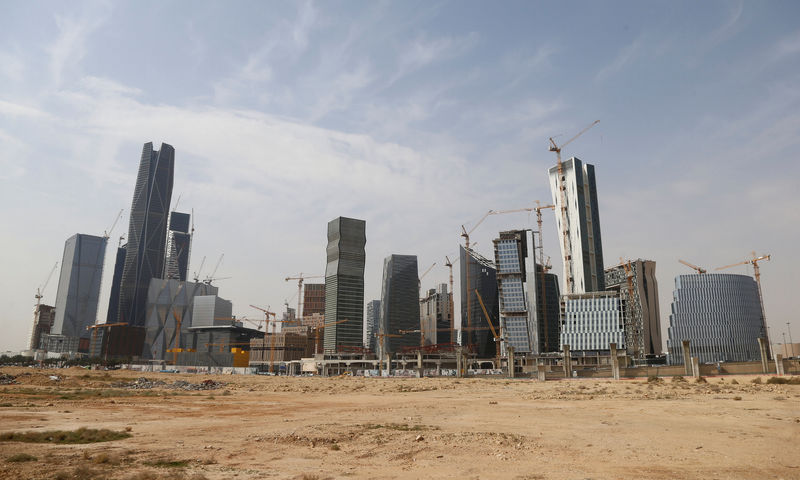DUBAI (Reuters) - Growth in Saudi Arabia's non-oil private sector increased in September at the fastest rate for three months, as output increased and employment growth reached an 18-month high, a survey showed on Thursday.
The seasonally adjusted IHS Markit Saudi Arabia Purchasing Managers' Index (PMI) rose to 57.3 in September from 57.0 in August. Any reading above the 50 mark indicates expansion.
Growth has picked up this year after flagging in 2018 because of increases in fuel prices and the introduction of a 5% value-added tax. The PMI averaged 56.9 from January till September, against a 53.6 average for the same period last year.
"Output among non-oil private sector firms in Saudi Arabia grew at a sharp pace in September, with the rate of expansion quickening to the fastest since December 2017," said Amritpal Virdee, principal economist at survey compiler IHS Markit.
"At current levels, the PMI survey is consistent with year-on-year GDP growth of around 3% as we head into the final quarter of 2019," he said.
Saudi GDP contracted in 2017 before recovering to 2.2% growth last year, helped by strong oil output. Oil output cuts this year mean GDP is expected to show little growth or to contract.
Employment levels rose in September at the strongest rate of growth since March last year. The sub-index increased to 51.5 from 50.1 a month earlier.
"Non-oil private sector firms sought to add to their payrolls at the most marked pace in 18 months, buoyed by efforts to improve the quality of product offerings," Virdee said.
Output growth increased to 61.7 from 60.7 in August, but new orders edged down to 62.3 from 63.5 a month earlier.
New export orders rose only slightly, to 52.8 from 52.7, showing domestic demand was driving new business.
Fitch on Monday downgraded Saudi Arabia's credit rating to A from A+, citing rising geopolitical and military tensions in the Gulf following a major attack on its oil facilities last month and a deterioration of the kingdom's fiscal position.

"October data will provide the first opportunity to gauge the impact of the recent attacks on the critical oil processing facilities in Abaqaiq and Khurais on the wider economy," Virdee said.